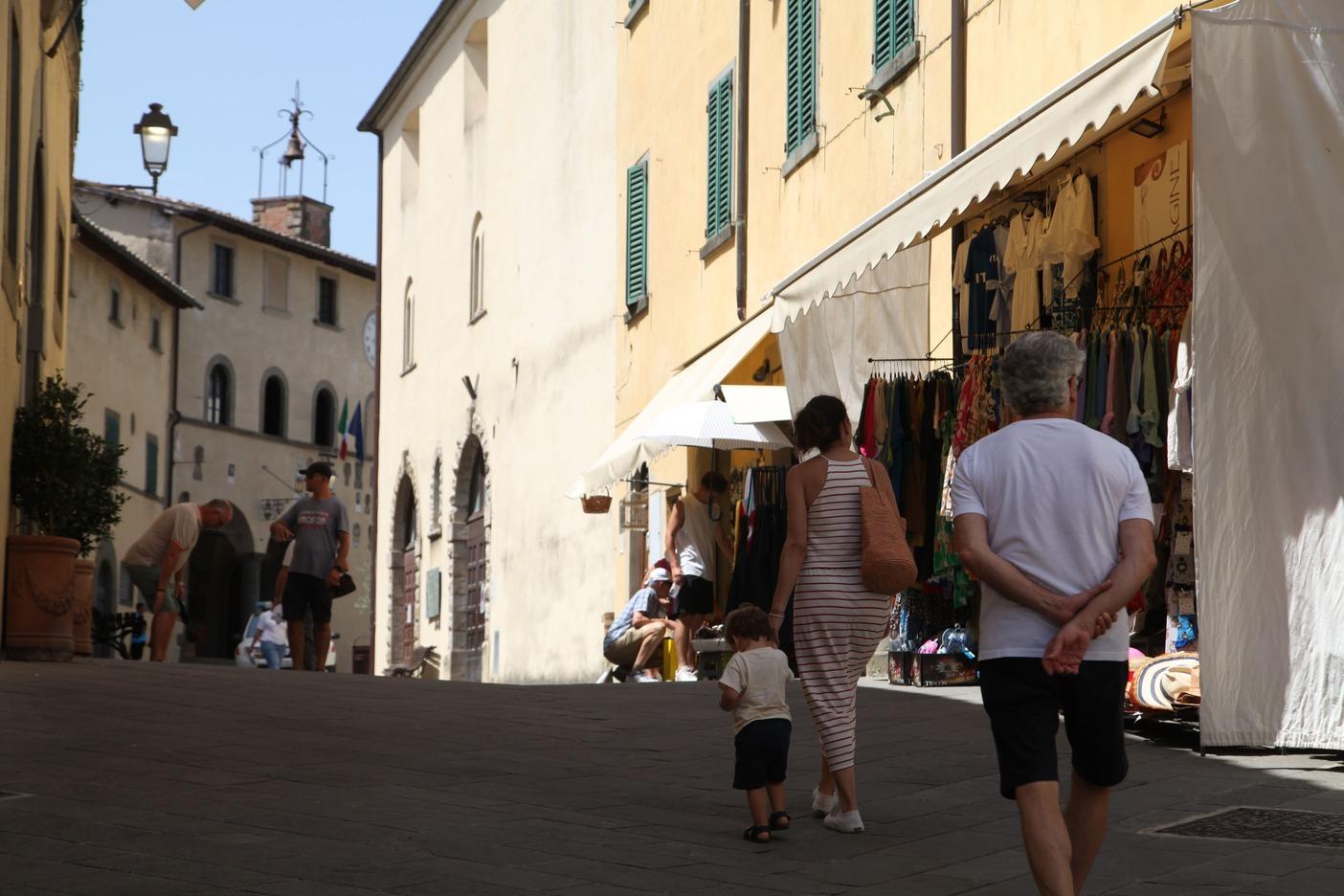By Simone Bandini
New summer meeting with Mayor of Radda in Chianti Pier Paolo Mugnaini and with Councillor for Urban Planning Daniele Barbucci: a series of meetings are scheduled in September with citizens, agricultural, tourist and productive companies in view of the approval of the new Operational Plan.
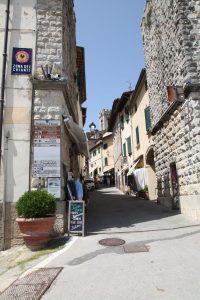 Water, energy, hydrogeological protection, waste and forest: these are the five cornerstones of the new Operational Plan promoted by the Municipal Administration and which confirm the probative and implementing commitment of the eco-centric vision we have already dealt with (Valley Life “Chianti, Valdelsa and Florentine Hills, nr. 169, Fall 2022).”The rural landscape of Chianti has an exceptional historical identity value and represents, together with agricultural and environmental resources and its specific rural identity, a pre-eminent value for this territory, where the protection of the landscape and the environment become a source of direct and indirect income, as well as representing a garrison for the territory and defence from hydrogeological instability”, reads in the introduction. “The international reputation of this territory, linked to its landscape and historical and cultural heritage of great value, makes it necessary to support agricultural activity, in the adoption of all the interventions to protect the rural landscape, supporting and promoting the maintenance of its typical elements such as farmhouses, rural aggregations, terraces, embankments and all its environmental complex, as it has developed and transformed over the centuries, since it is a landscape ‘built’ by the hands of its inhabitants”, it is specified.
Water, energy, hydrogeological protection, waste and forest: these are the five cornerstones of the new Operational Plan promoted by the Municipal Administration and which confirm the probative and implementing commitment of the eco-centric vision we have already dealt with (Valley Life “Chianti, Valdelsa and Florentine Hills, nr. 169, Fall 2022).”The rural landscape of Chianti has an exceptional historical identity value and represents, together with agricultural and environmental resources and its specific rural identity, a pre-eminent value for this territory, where the protection of the landscape and the environment become a source of direct and indirect income, as well as representing a garrison for the territory and defence from hydrogeological instability”, reads in the introduction. “The international reputation of this territory, linked to its landscape and historical and cultural heritage of great value, makes it necessary to support agricultural activity, in the adoption of all the interventions to protect the rural landscape, supporting and promoting the maintenance of its typical elements such as farmhouses, rural aggregations, terraces, embankments and all its environmental complex, as it has developed and transformed over the centuries, since it is a landscape ‘built’ by the hands of its inhabitants”, it is specified.
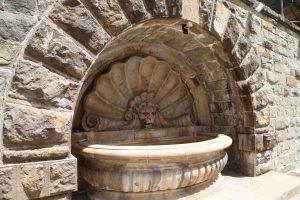 In this perspective: “The activation of a protection system connected to development and attentive to the needs of the companies that are part of it, through forms of aggregation between entrepreneurs, managing bodies, researchers and other subjects responsible for the transfer of knowledge, can allow sharing and collaboration and produce synergistic actions also in the request and destination of both regional and state funding”.
In this perspective: “The activation of a protection system connected to development and attentive to the needs of the companies that are part of it, through forms of aggregation between entrepreneurs, managing bodies, researchers and other subjects responsible for the transfer of knowledge, can allow sharing and collaboration and produce synergistic actions also in the request and destination of both regional and state funding”.
In this sense, the concrete actions will concern the macro-aspects of ‘water conservation’, ‘energy production’, ‘hydrogeological defence’, ‘waste treatment’, ‘exploitation and conservation of forests’.
With regard to the ‘water’ chapter, it will be necessary to promote and enhance rainwater collection systems at times of maximum rainfall and to encourage the infiltration and retention capacity of water resources, also to avoid the risk of hydrogeological instability. The new Operational Plan, in agreement with the properties concerned, will have to identify the suitable places for the location of basins or reservoirs for better land management – which have the minimum environmental impact and allow a better use of the asset.
‘Energy’, on the other hand, mainly means the objective of establishing a ‘Renewable Energy Community’, on a voluntary basis and at the service of all: citizens, businesses and local authorities, will be able to unite to produce and share their energy from clean sources, forming a collective self-consumption group, so that the panels can be located on public buildings, industrial warehouses or places far from visual cones characterizing the territory, thus preserving it from the incongruous positioning of the same or other evident and invasive forms of alternative energy production, so as not to distort a landscape and threaten its peculiarity.
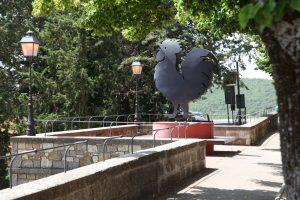 For the ‘hydrogeological defence’: “Hydraulic-agrarian arrangements are planned in hilly environments to regulate the outflow of excess water, compared to the capacity of the soil, favouring the containment of erosion that leads to the impoverishment of the soil. Recovery interventions can thus prevent runoff water from acquiring dangerous volumes and speeds, causing landslides, but will also be useful for improving soil fertility”. The declared objective is to: “Exploit and repeat the experience of the ‘Integrated Territorial Projects’ (PIT Alta Val di Pesa) within the rural development plan of the Tuscany Region – which has allocated resources for the restoration of terraces, exploiting the experience of restoring the ancient hydraulic arrangements of the territory that has seen numerous active companies, both directly and indirectly”.
For the ‘hydrogeological defence’: “Hydraulic-agrarian arrangements are planned in hilly environments to regulate the outflow of excess water, compared to the capacity of the soil, favouring the containment of erosion that leads to the impoverishment of the soil. Recovery interventions can thus prevent runoff water from acquiring dangerous volumes and speeds, causing landslides, but will also be useful for improving soil fertility”. The declared objective is to: “Exploit and repeat the experience of the ‘Integrated Territorial Projects’ (PIT Alta Val di Pesa) within the rural development plan of the Tuscany Region – which has allocated resources for the restoration of terraces, exploiting the experience of restoring the ancient hydraulic arrangements of the territory that has seen numerous active companies, both directly and indirectly”.
With regard to ‘Waste’, the Municipality will try to: “Establish agreements with treatment centres for the collection and transformation into compost of organic waste of member companies. Vegetable waste lends itself perfectly to the production of stable organic soil and the compost could be returned to farms to restore crop fertility. It will be a matter of finding, based on the estimated annual production, a treatment centre that is available for on-site collection and return of part of the production, at no cost to the companies”.
Finally, the ‘Forest’ is of growing importance as a result of climate change and its care and exploitation take on a value not perceived until now: “The aggregation of forests of various properties, through the conferment of the forest asset by a network of properties, in synergy with institutions, professionals and companies, with a cooperative approach and through the use of technological tools that can bring economic and environmental benefits. The owners involved (private individuals, farms and public bodies) are members of the ‘Community Cooperative’. The companies, in coordination with the University of Florence, will be able to deal with surveys, analysis and evaluation of the woods and will produce detailed maps that will lead to dynamic and integrated ‘Management Plans’ according to the specific characteristics found. Depending on the various management methods, economic and environmental benefits can be obtained that the owner is entitled to”. The resources will be derived from integrated management – the forest that supports the forest, re-investing part of the revenues obtained, or through public or private funding. Among the planned activities there is also the enhancement of recreational tourism.
Joint public-private forest management can be productive, protective, fruitful, recreational or conservative.
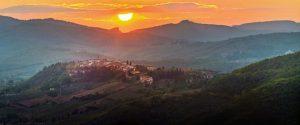
Information Office Pro Loco Radda: Piazza Castello / Tel. 0577 738494 (Silvia Brogi) / proradda@chiantinet.it
/ www.comune.radda-in-chianti.si.it / www.visitchianti.net
